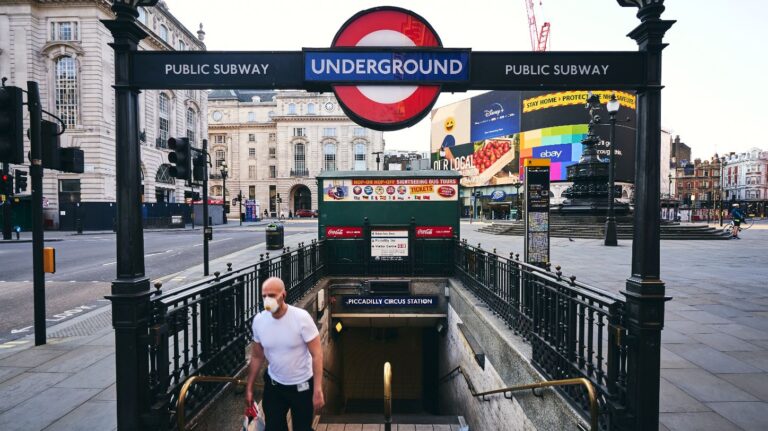Ahead of industrial action in the coming weeks from the National Union of Rail, Maritime and Transport Workers (RMT) and Associated Society of Locomotive Engineers and Firemen (ASLEF), Transport for London (TfL) workers have also announced that they will be striking for six days over pensions, job cuts and working conditions.
Strikes across the London Underground are planned for between Sunday 23 and Saturday 29 July, with little to no tube services expected between Tuesday 25 and Friday 28 July. There will also be no night tube on 28 July, if the industrial action goes ahead.
According to TfL, the strike will not be implemented across the following services: DLR, London Overground, Night Overground, Elizabeth line, tram and IFS Cloud Cable Car services.
The transport body warned passengers to plan ahead before they travel, and said that some Elizabeth line, DLR and London Overground (including night services) routes may be affected by station closures where stations also serve London Underground lines.
National rail workers will also be striking as part of an ongoing pay dispute, as the RMT has called on its 20,000 members to engage in industrial action on Thursday 20, Saturday 22 and Saturday 29 July.
Some of these dates overlap with ASLEF’s proposed action, which has announced a third overtime ban.
Overtime, also known as non-contractual overtime or rest day working, is something on which many train operators rely to run a full schedule. ASLEF has said that train companies not employing enough drivers has led to their dependancy on overtime.
The ASLEF ban meant services run by 15 companies across England faced disruption as of Monday 17 July, and will continue to be affected until Saturday 22 July, and then again from Monday 31 July to Saturday 5 August.
Mick Whelan, ASLEF’s general secretary, said: ‘We don’t want to take this action. We don’t want people to be inconvenienced.
“But the blame lies with the train companies, and the government which stands behind them, which refuse to sit down and talk to us and have not made a fair and sensible pay offer to train drivers who have not had one for four years – since 2019 – while prices have soared in that time by more than 12%.
“…In contrast, we want a resolution. A fair resolution. That’s why we are taking this action, to try to bring things to a head. Then I can concentrate on my day job working with others in the industry to rebuild Britain’s railways for passengers, for business, and for this country.”
The following train operators will be affected by the ASLEF action: Avanti West Coast; Chiltern Railways; Cross Country; East Midlands Railway; Greater Anglia; Great Western Railway; GTR Great Northern Thameslink; Island Line; LNER; Northern Trains; Southeastern; Southern/Gatwick Express; South Western Railway main line; TransPennine Express; and West Midlands Trains.
The RMT initiated its own industrial action in May last year, when the rail workers body announced it would be staging its first strike since 1994 after members voted in favour of the decision.
National rail strikes will, based on shared stations, tracks and other infrastructure, have a knock-on effect on some District line, London Overground, Elizabeth line and tram services.
Mick Lynch, general secretary of the RMT, added: “This week of action will shut down the London Underground and show just how important the work of our members is.”
Other motivations for striking include the proposed closure of ticket offices, with trains stations across the country currently holding consultations on this issue.





